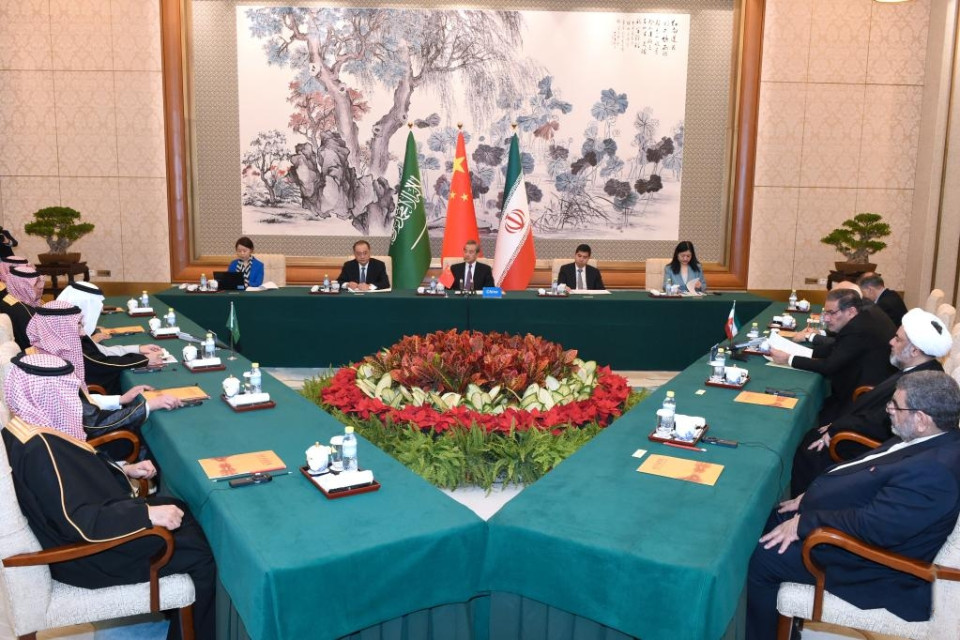Iran and Saudi Arabia agreed to resume diplomatic relations and reopen embassies in each other’s countries after four days of Chinese-mediated talks in Beijing, according to a joint statement released by China, Saudi Arabia and Iran on March 10.
“It’s a victory of China’s diplomacy which upholds justice, facilitates peace, and promotes talks. It will add weight to China’s initiatives on global affairs, such as the country’s position paper on the political settlement of the Ukraine crisis,” said Li Shaoxian, director of China Institute for Arab Studies at Ningxia University, in an interview with GDToday on March 11.

(Photo/Xinhua)
The agreement sets an example for settling global hotspot issues
In the joint statement, both Iran and Saudi Arabia stressed respect for sovereignty and non-interference in each other’s internal affairs, and agreed to implement the agreement on security cooperation signed on April 17, 2001, as well as the general agreement reached on May 27, 1998 aimed at fostering ties in economic, commercial, investment, technical, scientific, cultural, sports, and youth arenas.
“Iran and Saudi Arabia had previously held talks aimed at reconciliation in Oman and Iraq during the years 2021 to 2022. China’s mediation has been the last and vital push for the peaceful settlement of the disputes between the two countries.”
Oman’s foreign ministry welcomed the development on Twitter, expressing hope that it will contribute to strengthening the pillars of security and stability in the region and consolidating positive and constructive cooperation that benefits all peoples of the region and the world.
“The difficulty of restoring Iran-Saudi ties scores nine stars on a ten-star scale, in some experts’ views. There is no doubt that the agreement will set an example for the peaceful settlement of other regional and international issues, such as the civil wars in Syria and Yemen, as well as the Israel-Palestine conflict,” Li noted.
Foreign interference, main factor of Iran-Saudi Arabia tension escalation
Saudi Arabia and Iran are long-term rivals and support different sides in conflicts from Yemen to Lebanon to Syria. In 2016, Riyadh severed ties with Tehran, after Iranian protesters stormed the Saudi embassy in the Iranian capital in response to Saudi authorities executing 47 dissidents, including a leading Shia cleric.
“Iran and Saudi Arabia have been neighbors for thousands of years. The escalation of tension between the two sides was to a large extent due to the intervention of external forces, especially the US,” Li said.
He furthered, “For example, the US launched the maximum pressure campaign against Iran during the Trump administration, and has been stirring up confrontation between factions and countries in the Middle East.”
Li told GDToday that the rivalry between Iran and Saudi Arabia has been the major factor destabilizing the Gulf region. The International Crisis Group listed “10 Conflicts to Watch in 2023”, among which two countries, Iran and Yemen, were in the region.
“What is reassuring is that the restoration of diplomatic ties between the regional heavyweights has opened the door to peace in the Middle East. It manifests that China’s Global Security Initiative works for strengthening world peace and security, and serves as an exemplar of building a community with a shared future for mankind,” Li elaborated.
“The talks in Beijing assure the world that China will continue playing a constructive role in properly handling hotspot issues regionally and internationally,” Li said.
Reporter | Lydia Liu
Editor | Wing, Steven, Jasmine, Jerry
















